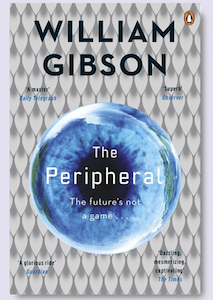When a colleague showed me the first minutes of what was then “a new HBO TV series”, I was hooked: I had to see “Game of Thrones“. The first few episodes that we watched on TV also made it clear that I would have to read the books by George R.R. Martin. if only because I could get to the end (?) of the story faster by reading than by waiting a week for the next episode on TV ;-)
I loved the books very much: the story is compelling and full of surprises, as we all know by now. Equally impressive is the world that George Martin created, and which you discover through reading the story, not because it is explicitly explained. I hadn’t read anything so intense since my discovery of the Dune universe, in the words of Frank Herbert (the more recent additions by his son Brian and Kevin Anderson are not at the same level).

Image credits: HBO
So like many others all around the world we waited for the final season of the TV series… and were a bit disappointed with what we saw in the first three episodes. Many scenes seemed to be stretched out just for the sake of making the episode sufficiently long. Some scenes are so different from what we are used to expect from previous seasons that they are hard to fit into the narrative we know.
Then by accident I stumbled up “The Real Reason Fans Hate the Last Season of Game of Thrones“.
Even if the new season had managed to minimize plot holes and avoid clunky coincidences and a clumsy Arya ex machina as a storytelling device, they couldn’t persist in the narrative lane of the past seasons. For Benioff and Weiss, trying to continue what Game of Thrones had set out to do, tell a compelling sociological story, would be like trying to eat melting ice cream with a fork. Hollywood mostly knows how to tell psychological, individualized stories. They do not have the right tools for sociological stories, nor do they even seem to understand the job.
If I understand the article correctly, this is what the author means by “sociological stories”: the story itself is the essence of what’s going on, not the major characters populating the story. That is why GoT gets away with literally killing off so many major characters without losing its pace and attractiveness.
That tension between internal stories and desires, psychology and external pressures, institutions, norms and events was exactly what Game of Thrones showed us for many of its characters, creating rich tapestries of psychology but also behavior that was neither saintly nor fully evil at any one point. It was something more than that: you could understand why even the characters undertaking evil acts were doing what they did, how their good intentions got subverted, and how incentives structured behavior. The complexity made it much richer than a simplistic morality tale, where unadulterated good fights with evil.
Curse you, George R.R. Martin, for not finishing the story yourself in your books!
Read Full Post »












You must be logged in to post a comment.